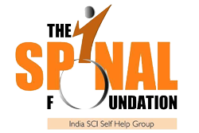About Myself
My name is Ashla Rani. I met with an accident on 2010 and injured my spinal cord. I came to Pallium India as a care receiver in 2014, became a full-time volunteer and now I am both a care recipient and a care provider. I am one of the trustees of Pallium India from 2020 representing people who receive care. I work with people with disabilities in our rehabilitation program.
Name of the organisation
Pallium India
Vision and Mission including year of inception
विज़न
An India in which palliative care is integrated in all health care so that every person has access to effective pain relief and quality palliative care along with disease specific treatment and across the continuum of care.
मिशन(लक्ष्य)
To catalyze the development of effective pain relief and quality palliative care services and their integration in health care across India through delivery of services, education, building capacities, policy, research, advocacy and information.
Year of inception – 2003
Work done and being done with respect to spinal cord injury
HALFWAY HOME
Pallium India runs a “Halfway Home†Programme (started in 2015) where patients with spinal cord trauma are housed and rehabilitated in a facility that includes a kitchen, a wheelchair-accessible room, and restroom so they can be trained in using these facilities before they are sent home.
We currently work with two Physical and Medical Rehabilitation Physicians as well as Physiotherapists. This is in addition to the regular multidisciplinary team.
The rehabilitation team works with them to regain as much function as possible. Various assistive aids and appliances including wheelchairs are provided free of cost to patients who cannot afford them. Pallium India also works with the family, helping them adapt, while assisting with home modifications to facilitate the process of rehabilitation.
If possible, vocational rehabilitation is also done for these patients, to help them remain autonomous. Skill building in simple activities like making umbrellas, soaps and pens or tailoring are imparted so that they may provide some source of income for the family. This is especially important at times where the breadwinner of the family has been left paralyzed. Apart from the additional income, vocational training also provides an added sense of purpose for the patient and the caregiver. This may have additional mental health benefits as well.
Vision for the next 5 years
We hope to provide more home-based physiotherapy and rehabilitation to people and work with a vision to integrate people with spinal cord injuries back to society.
Contact Person: Ashla Rani

 by
by